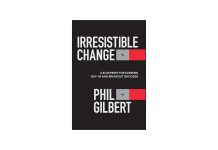
As inflation casts its ominous shadow on the economy, 63 percent of the U.S. workforce reports heightened financial stress. During open enrollment season, many employees scrutinize their available benefits programs more closely, especially amid the rising healthcare costs. In today’s challenging landscape, employers play a pivotal role in helping employees navigate the impact of inflation on their healthcare benefits.
Challenge: The Swift Rise in Healthcare Costs
The challenge du jour is the anticipated surge in healthcare costs for the coming year, a projected 8.5 percent increase—nearly double the rate from the previous year. With this in mind, employers are now saddled with the pressing need to locate effective solutions to mitigate the financial strain on their employees. They will need to regularly evaluate solutions available in the marketplace so employees can make informed decisions.
Solution 1: ICHRA – Tailoring Benefits for Employee Needs
What is ICHRA?
The Individual Coverage Health Reimbursement Arrangement (ICHRA) is a healthcare solution created under regulations issued by the federal government in 2019 and made available in 2020. ICHRAs represent a radical departure from previous Affordable Care Plan (ACA) implementation rules, moving away from the one-size-fits-all approach. Here, employers of any size, including nonprofits and churches, reimburse employees’ health insurance premiums and other healthcare tax-free.
Implementation Process
Once businesses opt for ICHRAs, they gain the flexibility to decide the monthly allowance provided to employees. Employees subsequently pay for their health insurance coverage and qualified expenses, and employers pay them back, up to the allowance amount. This provides a personalized and tax-efficient healthcare solution, empowering employees to choose plans that align with their unique needs.
Solution 2: HCSMs – A Community-Driven Alternative
Exploring Health Care Sharing Ministries (HCSMs)
In the face of rising healthcare costs, Health Care Sharing Ministries (HCSMs) have emerged as a community-driven alternative to traditional insurance plans. HCSMs are formed by individuals with a common religious or ethical belief who contribute a monthly fee to a collective pool. This fund then covers members’ medical costs, fostering a sense of solidarity and shared responsibility.
Potential Cost Savings and Community Support
This approach to healthcare can yield significant cost savings for employees whose values align with the principles of specific HCSMs. Contributions to HCSMs often are structured to make healthcare more accessible and affordable, providing an alternative for those seeking a community-driven, faith-based, or ethical solution to their healthcare needs. While health-sharing ministries do not currently qualify for participation under ICHRA, the IRS has proposed a plan to integrate the two.
Solution 3: Cafeteria Plans and Tax Savings
Flexible Benefits Plans
A cafeteria plan, also known as a Section 125 plan, permits employees to allocate a portion of their income before taxes, contributing to a fund for various benefits, including health-related expenses and life-event benefits such as adoption or childbirth.
FSAs and HSAs
Flexible Spending Accounts (FSAs) and Health Savings Accounts (HSAs) are among the most popular cafeteria plans. Employer-established FSAs allow employees to pay for health-related costs, including medical, dental, and vision care. This type of plan is particularly noteworthy for a “use it or lose it” nature, meaning unutilized funds may be forfeited unless a grace period or carryover option is in place. HSAs, on the other hand, are designed for individuals with high-deductible health plans. Unlike FSAs, they do allow unused funds to roll over, promoting long-term savings.
Solution 4: Changes to Employee Benefits to Control Costs
Strategic Changes to Employee Benefits
Many companies now are adopting strategic changes to their employee benefits to control costs. Instead of automatically renewing contracts with existing insurers, employers are seeking bids on their health insurance programs from multiple carriers. This shift aims to secure better deals and lower prices, promoting cost efficiency and financial prudence.
Results: Shaping a Cost-Effective Healthcare Landscape
The implementation of ICHRAs, HCSMs cafeteria plans like FSAs and HSAs, as well as tactical changes to employee benefits, result in a healthcare landscape that is full of options and that caters to the diverse needs of employees—all while addressing the financial challenges posed by inflation.
Takeaways
- Personalized and Tax-Efficient Options: ICHRAs sanction employers to offer personalized healthcare options while providing tax benefits to employees.
- Community-Driven Cost Sharing: HCSMs nurture community and social responsibility, offering a cost-effective substitute for traditional health insurance models.
- Flexibility with Cafeteria Plans: Cafeteria plans, such as FSAs and HSAs, signify a commitment to providing flexibility in employee healthcare, addressing physical and financial health needs.
- Strategic Changes for Cost Control: Employers can strategically amend employee benefits to secure better deals and lower prices, promoting financial efficiency.
Employers that embrace these solutions can successfully clear the hurdles erected by rising healthcare costs, promoting a healthier, more financially secure future for their employees in the face of inflation.



